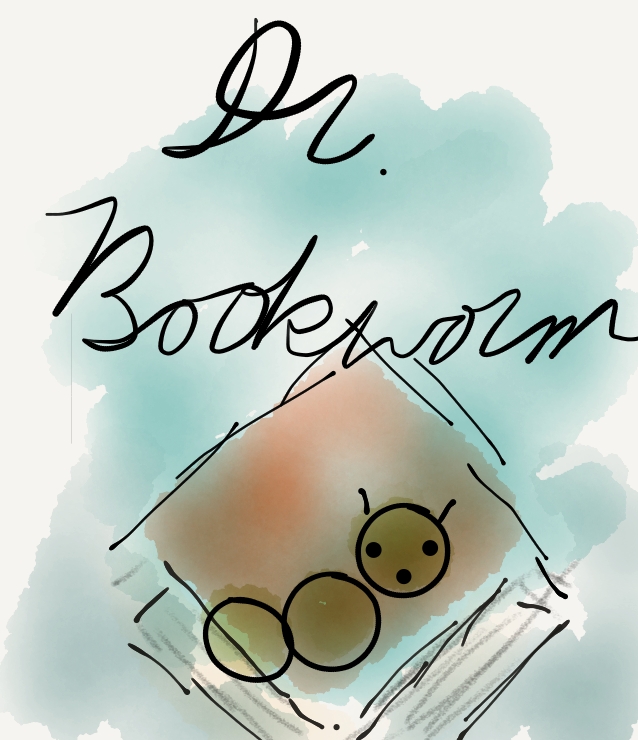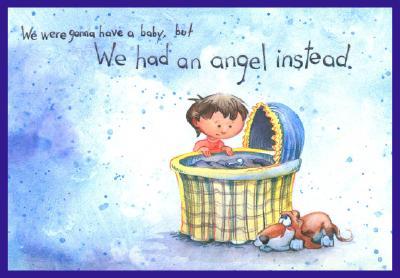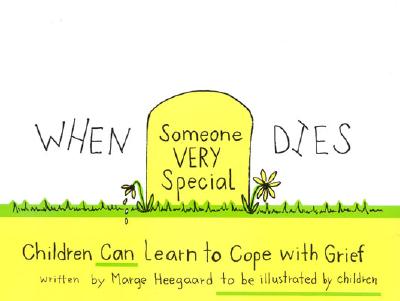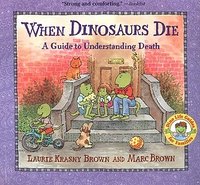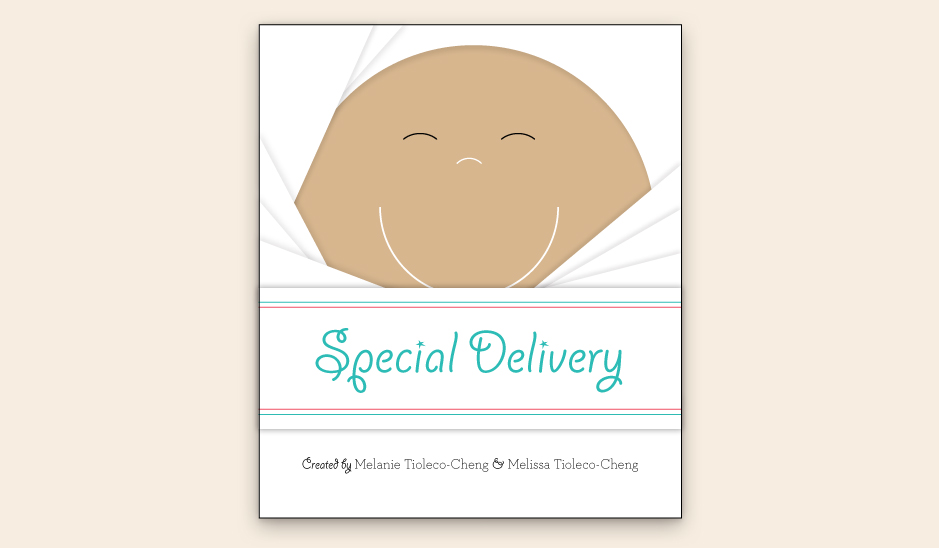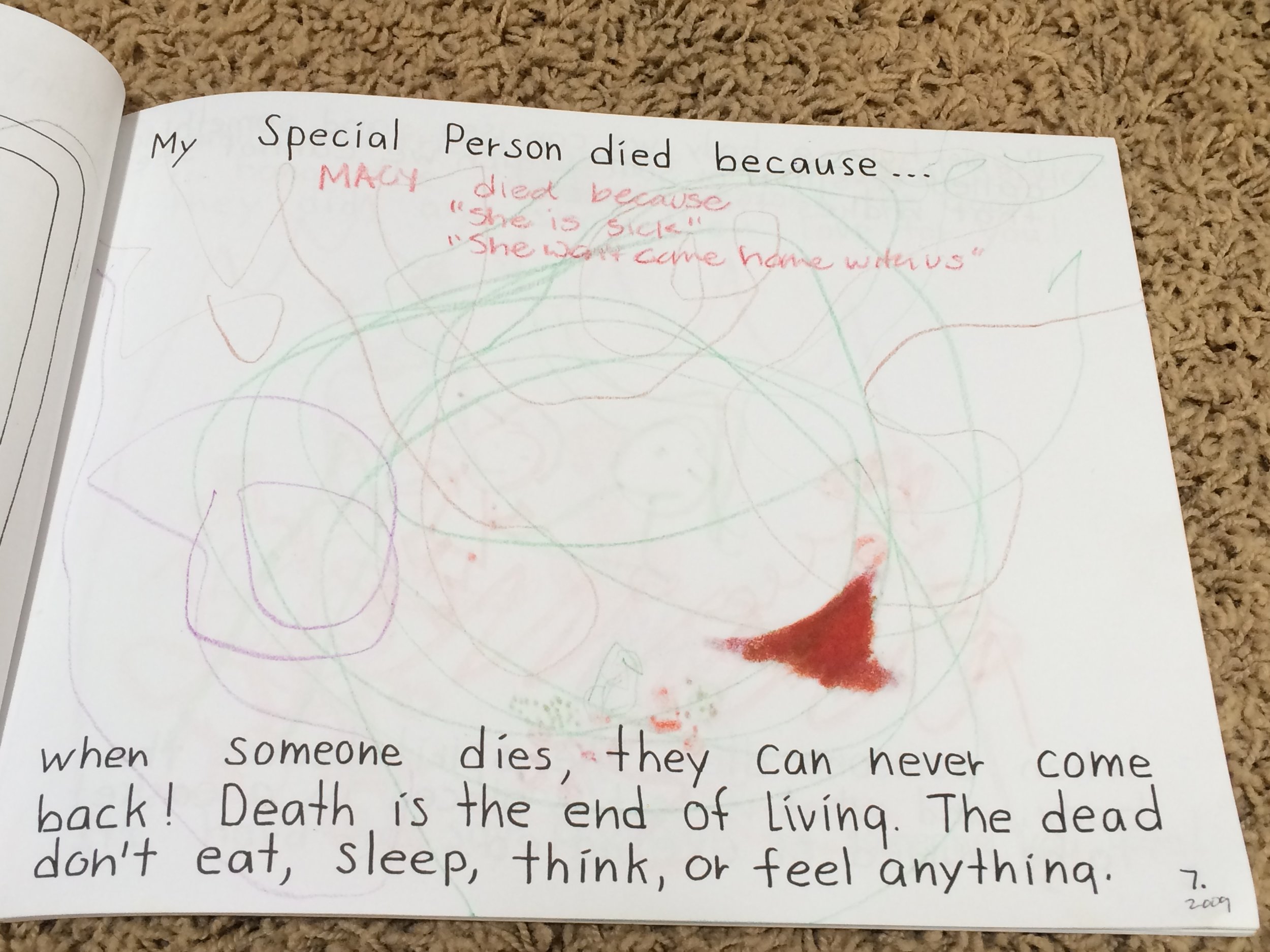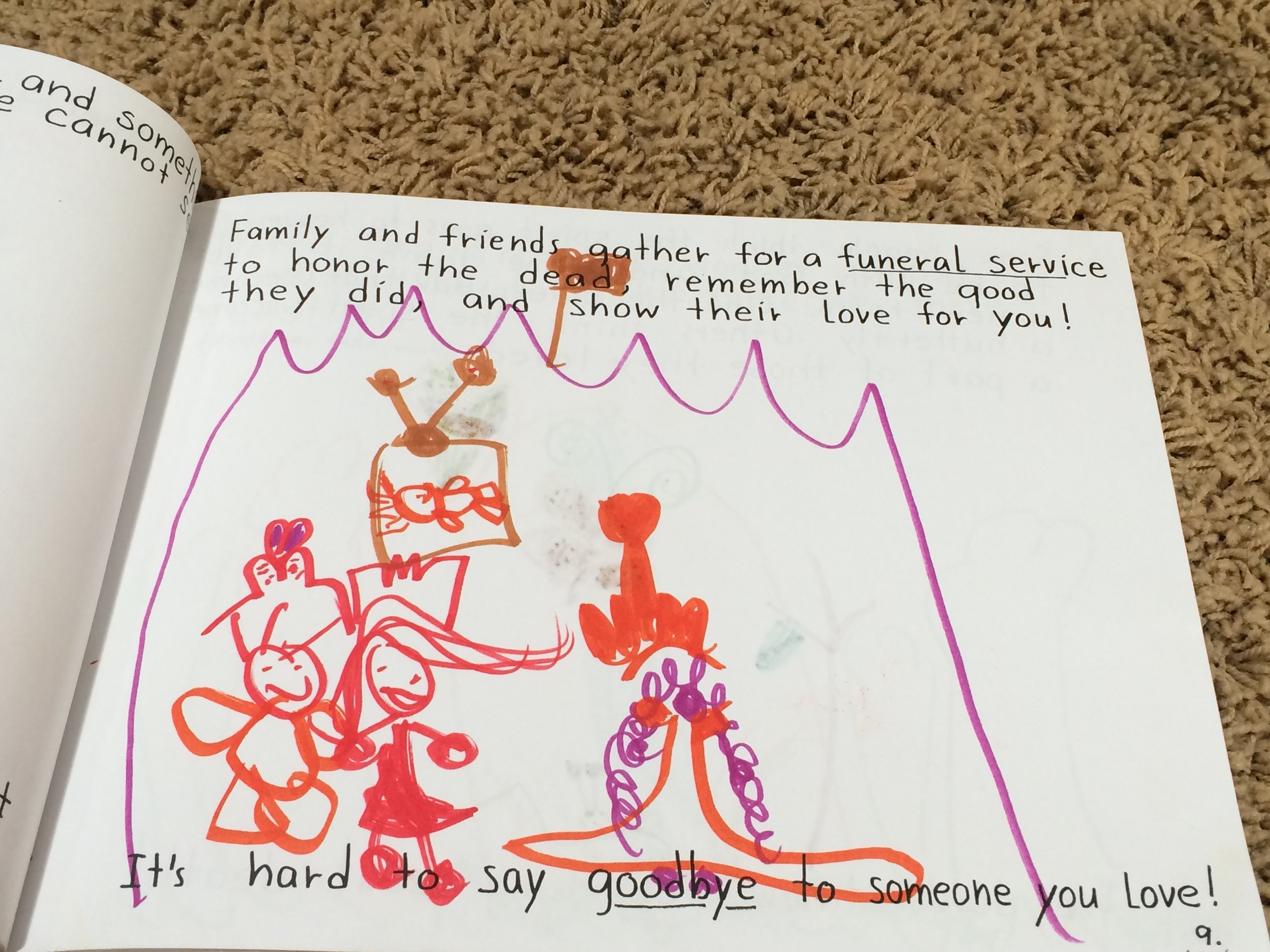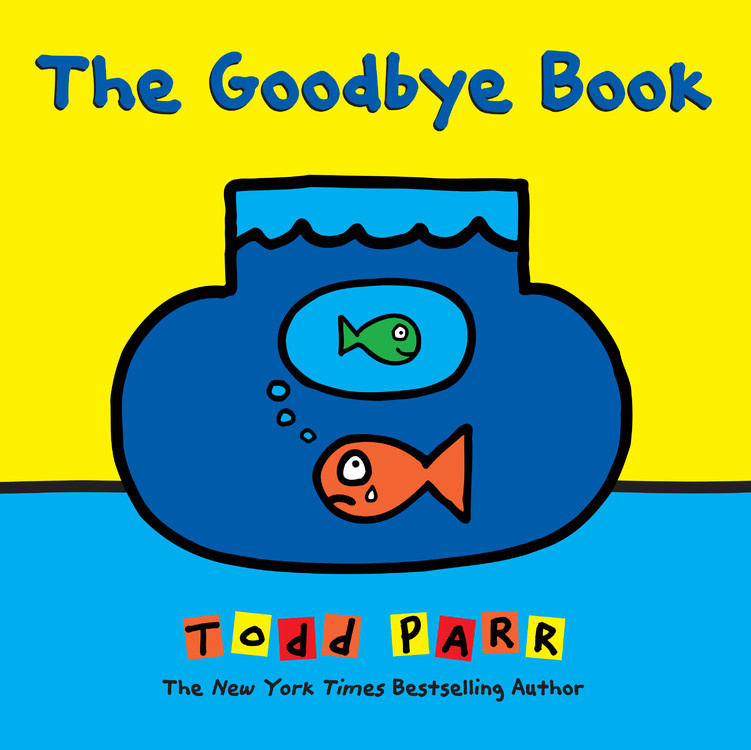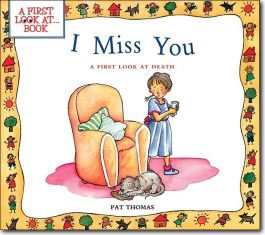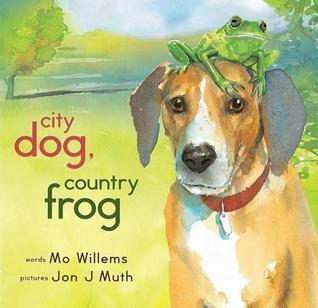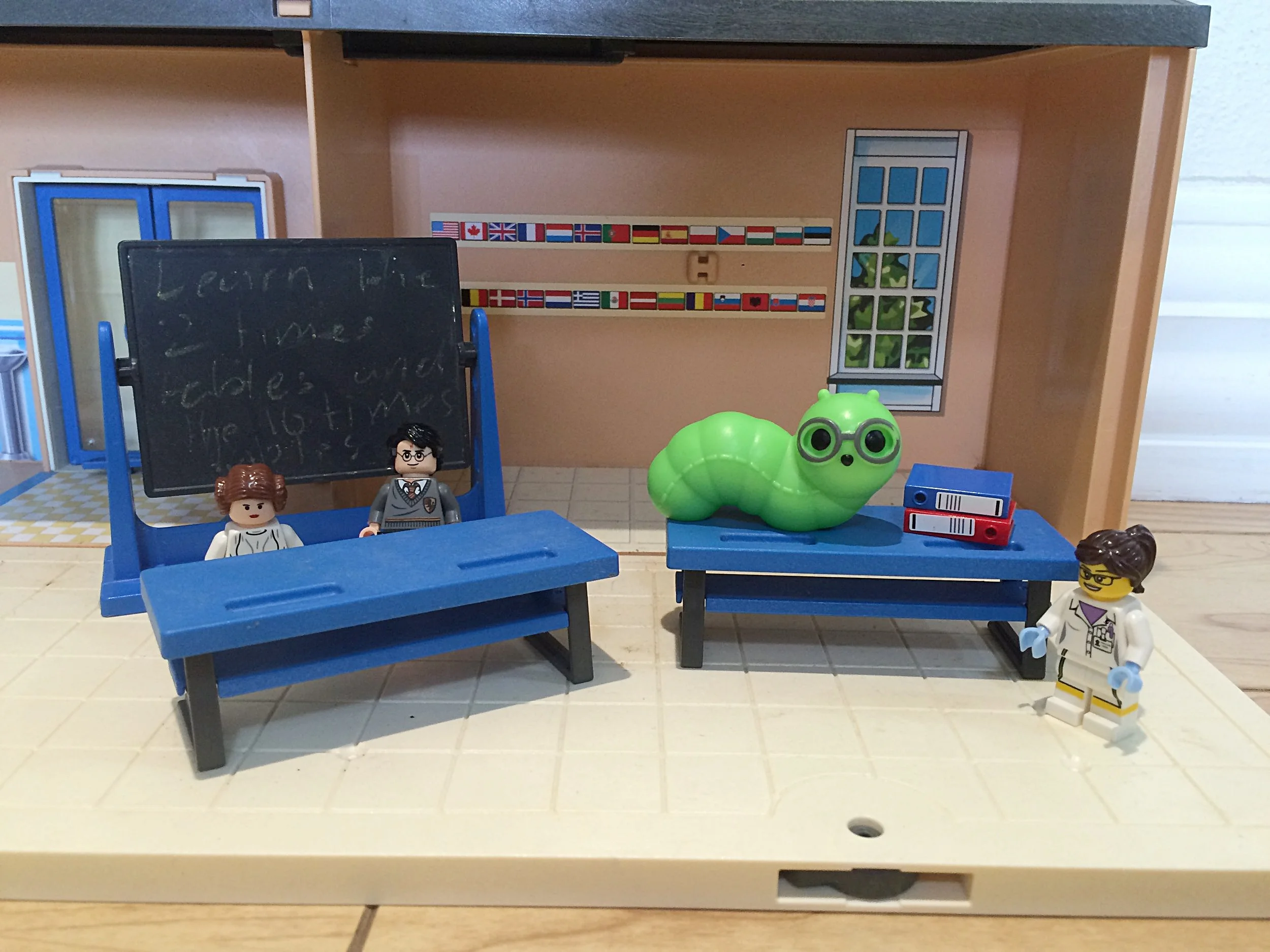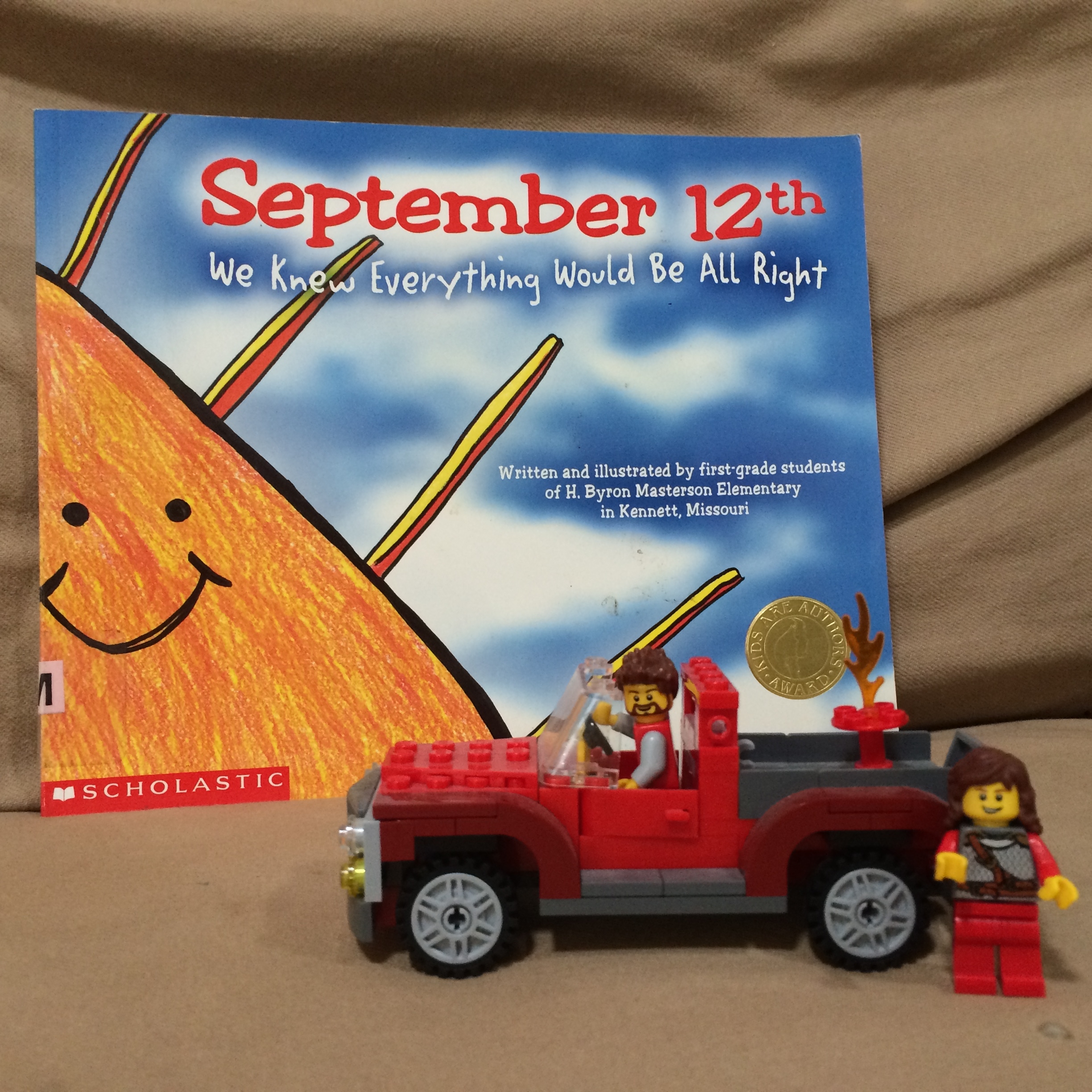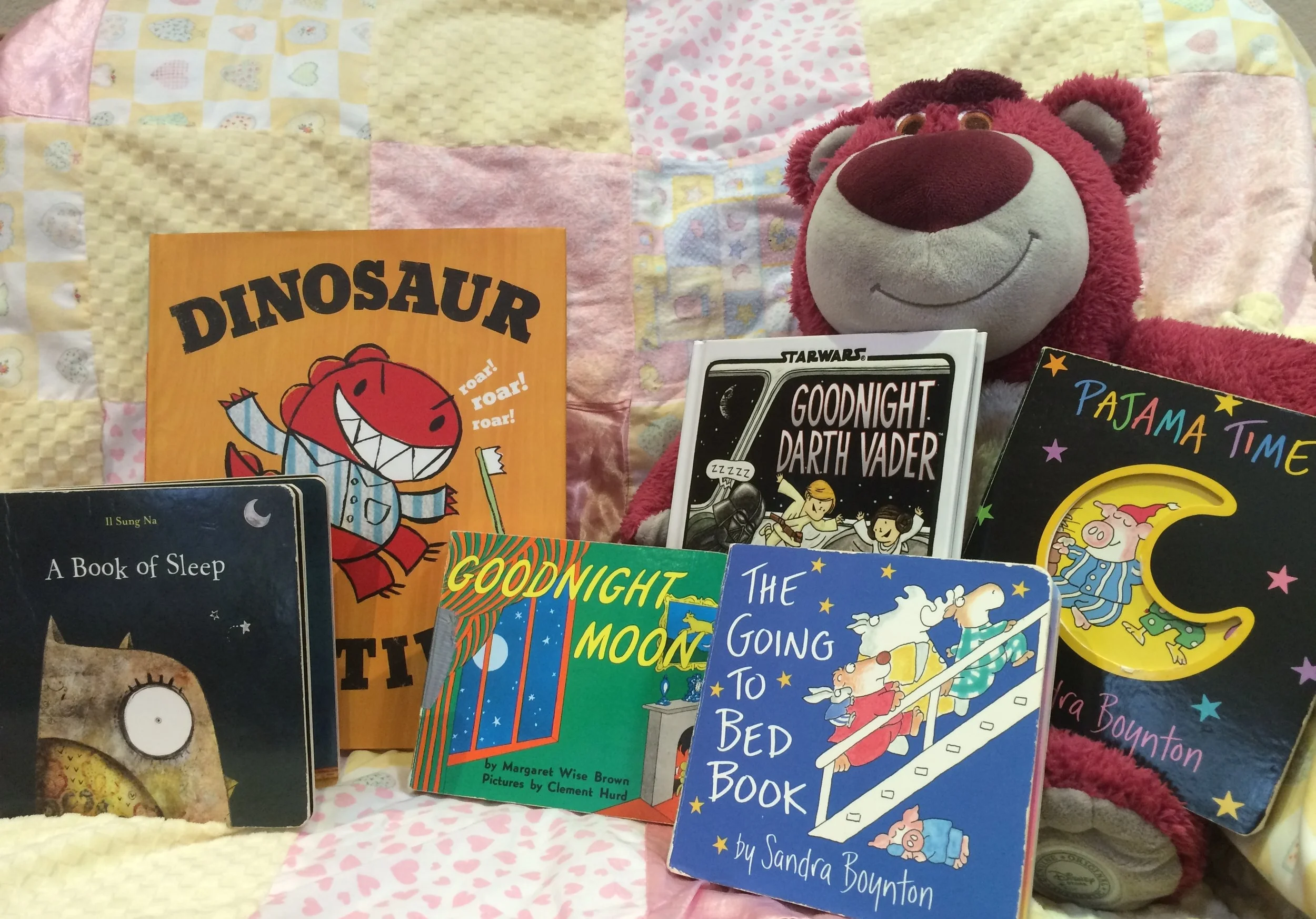Books About Infant Loss
Mr Bookworm with Mini-Me Bookworm and Macy. Above thumbnail created by Melissa Tioleco-Cheng for the Special Delivery website. (Both posted with permission)
October is Pregnancy and Infant Loss Awareness month. It's a mouthful, but if you've lost a child as I have, you know exactly what I'm talking about.
During my second pregnancy, I was told that Macy had trisomy 18. I was 19 weeks pregnant and I knew all too well what that would mean. While medical schools and residencies (hopefully) are changing terminology thanks to better awareness and a commitment to correcting our wrongs as doctors, I was taught that having trisomy 13 or 18 was 'incompatible with life'. It's not true, and it's a horrible way to express it. There are many challenges and there are many babies with trisomy 18 who are stillborn or don't make it to their first birthdays. But there are also so many babies with trisomy 18 who are survivors.
Changing the way we as medical students and trainees think about high risk pregnancies changes the way we care for our patients and their families.
Long story short, even though Macy had trisomy 18, a congenital diaphragmatic hernia, complicated heart disease that included an AV canal defect, and other medically complicated issues, she was born full term and lived for two hours. How was this possible? By sheer determination on the parts of her parents and a wealth of love, support, not to mention meals, from countless family members and friends. (And the perinatal comfort care team at St Joseph's. I still have a huge place in my heart for their support in enabling me to have control over this out-of-control pregnancy.)
But what happens next?
Little Lion Bookworm holding a copy of Special Delivery.
If you are reading this on our Special Delivery site, then you may have read about Macy's journey. And mine. But if you're on Dr Bookworm, let me begin by telling you all that even though I knew Macy was going to die as we chose not to have surgeries that would only cause her pain (and she would not have survived anyway), even though I knew that I would outlive my child, I did not realize how great the sadness and grief would be in the aftermath of her death.
We were given several books to help us sort through our grief (and also during our pregnancy), many just for me and my husband, and a few for Mini-Me bookworm, who at 2 years and 9 months old was very cognizant of what was going on in our house. The most cognizant 2 year old around. Most of these books had some sort of religious element, and my husband and I aren't very religious people.
During one sleepless night, I tossed and turned in bed, and thought up some lines to tell Mini-Me. This evolved, with my sister's help, into a book we produced for Macy's funeral, which later was published through a grant from Sappi Ideas That Matter. (See below)
We read We Were Gonna Have a Baby, But We Had An Angel Instead by Pat Schwiebert, which I had mixed feelings about because I believe in an afterlife, whereas my husband does not. What would we teach Mini-Me? We compromised. And this book in particular helped her understand that she wasn't alone, that she wasn't the only one coming home without an obvious source of her big sisterhood. We did warn her closer to my due date that Macy wasn't going to survive. She was likely the only two year old around who could teach other people about what chromosomes are. (And if you know Mini Me, I know you're not surprised.) What I did like about this book is the emphasis on the fact that it is okay to be sad, it is okay to be disappointed, it is okay to wish that your baby had survived. And it's okay to talk about all of those things.
We were also given a copy of When Someone Very Special Dies written by Marge Heegaard, to be illustrated by children. This book was a fun (Can going through grief be called fun?) interactive book for Mini-Me. Though she was only two years old when her sister died, she liked to read parts of this book often and she scribbled on a few pictures. When she was older, she came back to this book often as well, and added drawings when she was five. I think it was a way of her coping with the loss she didn't know she had. In fact, now that I think about, I might purchase another copy of this one for Little Lion (see below about her transition). It may be something 'concrete' she can do with her feelings. This book goes through the various stages of death--like how you might feel, a life cycle, what the funeral looked like, a picture of your loved one.
A book I purchased later on--likely when Mini-Me was 4 or 5 years old--was When Dinosaurs Die: A Guide to Understanding Death by Laurie Krasny Brown and Marc Brown. Marc Brown is the same author of the beloved Arthur series. Written in comic strip fashion, this book tackled a lot of the questions that younger ones have regarding death. Again, I think I'll revisit this one with Little Lion, who is now six years old.
If you would like a copy of Special Delivery, you can download a PDF at our website. Or you can request a board book copy--the books are free, we just ask for shipping.
We're going through a strange transition in our house. My policy is to always talk about Macy when someone asks about her, including my kids. I have had some people who apologize after asking about Macy--but why apologize? Like with any of my kids, I am happy to talk about her too. Currently if we talk about Macy at home, Little Lion Bookworm eventually starts to tear up and asks us to talk about something else. Little Lion is our rainbow baby, meaning that she was our baby born after we lost Macy. So she never got to meet her. Recently the girls have been having struggles about what they think is fair or not fair. I'm not sure if this is LL's way of telling us that it's not fair that she's the only one who never got to meet her.
Similarly, as with most preschoolers, pre-Kers and Kindergartners, we have done our fair share of family projects and family trees. With both our girls, I always ask if they want to include Macy or not and that it's their choice. Most of the time, they choose not to include Macy and that's okay. Sometimes they don't know how to talk about their other sister with their peers. Often, however, Little Lion will ask me why Macy wasn't on her school family tree (after the fact), and I explain gently that she did not want to place her there but she could have if she wanted to. It's a conundrum and it's confusing, even for me. I guarantee that among my friends and acquaintances at my girls' school, maybe less than half the people know that I have lost a child. And that's okay.
What's interesting is that sometimes it gets harder to talk about Macy. After her death, I'd talk about her all the time. Nowadays in front of people who may not know, I'm hesitant. Why? Because grief is a tricky thing. While I will always mourn and miss Macy, others may feel that after 7 1/2 years, I should be 'over it'. But you know what? You never really 'get over' the death of your child. It's an unnatural order of things.
For all of you families who have lost a child, no matter how fleeting your time with them, I am thinking of you this month. I wish you peace, acceptance, and joy.
Because, yes, sometimes there is still joy, even after death.
Other picture books (I haven't read these so can't comment):
The Goodbye Book by Todd Parr Summary: "Through the lens of a pet fish who has lost his companion, Todd Parr tells a moving and wholly accessible story about saying goodbye. Touching upon the host of emotions children experience, Todd reminds readers that it's okay not to know all the answers, and that someone will always be there to support them. An invaluable resource for life's toughest moments."
I Miss You: A First Look at Death by Pat Thomas:Summary: "When a close friend or family member dies, it can be difficult for children to express their feelings. This book helps boys and girls understand that death is a natural complement to life, and that grief and a sense of loss are normal feelings for them to have following a loved one's death. Titles in this sensitively presented series explore the dynamics of various relationships experienced by children of preschool through early school age. Kids are encouraged to understand personal feelings and social problems as a first step in dealing with them. Written by psychotherapist and counselor Pat Thomas, these books promote positive interaction among children, parents, and teachers. The story lines are simple and direct―easily accessible to younger children. There are full-color illustrations on every page."
City Dog, Country Frog by Mo Willems, illustrated by Jon J Muth Summary: "In spring, when City Dog runs free in the country for the first time, he spots Country Frog sitting on a rock, waiting for a friend. "You'll do," Frog says, and together they play Country Frog games. In summer, they meet again and play City Dog games. Through the seasons, whenever City Dog visits the country he runs straight for Country Frog's rock. In winter, things change for City Dog and Country Frog. Come spring, friendship blooms again, a little different this time.
Mo Willems' spare, poignant text and Jon J. Muth's expressive watercolors team up to tell a story that will resonate with readers of all ages." (Please note: we have read this book, but not in the context of Macy's death. It's lovely with amazing watercolor pictures and a heartbreaking moment when you realize that one of them must have died.)
